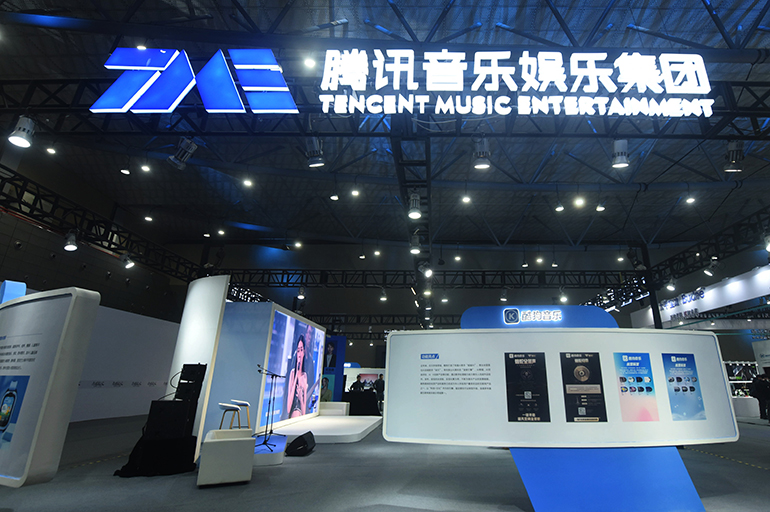 China’s Tencent Music Soars After First-Quarter Profit Triples
China’s Tencent Music Soars After First-Quarter Profit Triples(Yicai) May 14 -- Shares of Tencent Music Entertainment Group surged after the owner of China's biggest online music platform said net profit tripled in the first quarter, supported by strong growth in online music services and a one-time gain.
Tencent Music [HKG: 1698] finished 12.8 percent higher at HKD61.50 (USD7.97) a share in Hong Kong today, after its New York-traded stock [NYSE: TME] gained 2.5 percent to close at USD14.69 yesterday.
Net profit surged 202 percent to CNY4.3 billion (USD591 million) in the three months ended March 31 from a year ago, the Shenzhen-based firm said yesterday. This was mainly thanks to a nearly CNY2.4 billion one-time gain from receiving a 2 percent stake in Universal Music Group.
Revenue rose 8.7 percent to CNY7.4 billion, largely because income from online music services, which accounts for 79 percent of the total, jumped 16 percent to CNY5.8 billion. The number of Tencent Music's paying users rose 8.3 percent to 122.9 million.
"Our strong first-quarter performance, marked by robust revenue growth and solid profitability, underscores the successful execution of our high-quality growth strategy,” Executive Chairman Cussion Pang said.
Over recent years, Tencent Music has been shifting its revenue sources away from a heavy reliance on social entertainment services toward higher‑margin and more predictable income from music subscriptions and licensing deals.
Revenue from social entertainment services and other businesses fell 12 percent to CNY1.6 billion, with Tencent Music attributing the decline to "adjustments to certain livestreaming interactive functions and more stringent compliance procedures implemented.”
The company, which owns QQ Music, Kugou Music, and Kuwo Music, had 122.9 million paying users as of March-end, up 8.3 percent from a year earlier. Average revenue per paying user rose 7.5 percent to CNY11.40 (USD1.58).
It also renewed multi-year contracts with major record labels in the period, including Sony Music Entertainment, Emperor Entertainment Group, and Rock Records, and expanded its tie-ups with South Korea’s Starship Entertainment and YG Entertainment to meet the growing interest in K-pop.
“With the sound foundations we have built, a thriving music ecosystem, and healthy financial position, we are well equipped to navigate global uncertainties with confidence,” Pang said.
Editor: Futura Costaglione